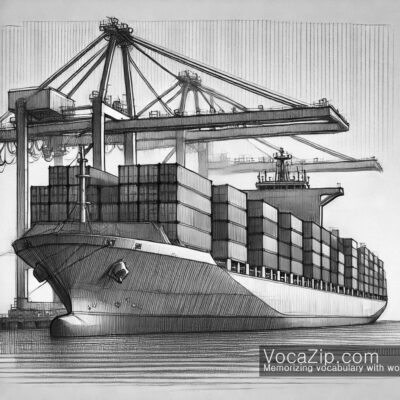transport meaning
transport :
Transporte, medio de transporte
Sustantivo
▪ The transport of goods is essential for trade.
▪ El transporte de mercancías es esencial para el comercio.
▪ Public transport is convenient in the city.
▪ El transporte público es conveniente en la ciudad.
paraphrasing
▪ conveyance – transporte
▪ transit – tránsito
▪ shipment – envío
▪ carriage – transporte

transport :
Transportar, llevar
Verbo
▪ They transport goods by truck.
▪ Ellos transportan mercancías en camión.
▪ The company transports people to the airport.
▪ La empresa transporta personas al aeropuerto.
paraphrasing
▪ carry – llevar
▪ move – mover
▪ convey – transportar
▪ deliver – entregar
Pronunciation
transport [ˈtræn.spɔːrt]
En el sustantivo, el acento está en la primera sílaba "trans", y suena como "trán-sport".
transport [trænˈspɔːrt]
En el verbo, el acento está en la segunda sílaba "port", y suena como "trans-pórt".
Common phrases and grammar about transport
transport - Common meaningn
Sustantivo
Transporte, medio de transporte
Verbo
Transportar, llevar
Part of Speech Changes for transport
▪ transportation (sustantivo) – transporte
▪ transporter (sustantivo) – transportador
Common Expressions with transport
▪ means of transport – medio de transporte
▪ transport goods – transportar mercancías
▪ public transport – transporte público
▪ transport system – sistema de transporte
Important examples of transport in TOEIC
Vocabulary examples from the TOEIC test
En las preguntas de vocabulario del TOEIC, "transport" se utiliza principalmente en contextos relacionados con el movimiento de bienes o personas.
Ejemplo de palabra fácilmente confundible: transfer (transferir)
‘transfer’ implica mover algo de un lugar a otro, pero a menudo se refiere a cambios de propiedad o responsabilidad, y no siempre al movimiento físico. En este contexto, ‘transport’ es la opción correcta.
Grammar examples from the TOEIC test
"Transport" se utiliza como verbo en preguntas de gramática, donde se examina el uso correcto del verbo en diferentes tiempos.
transport
Idioms and fixed expressions in TOEIC
"public transport" significa "transporte público" y se usa frecuentemente para referirse a autobuses, trenes y otros medios de transporte compartidos.
"transport of delight" es una expresión que significa "gran felicidad o emoción".
Differences between similar words and transport
transport
,
conveyance
differences
"Transport" es un término general para mover cosas, mientras que "conveyance" se refiere más al acto de transferir o llevar de un lugar a otro.
transport
,
transit
differences
"Transport" implica mover algo de un lugar a otro, mientras que "transit" se refiere al proceso de pasar por un lugar o estado.
Words with the same origin as transport
The origin of transport
"Transport" proviene del latín "transportare", que significa "llevar a través", refiriéndose al movimiento de un lugar a otro.
Word structure
Está compuesto por el prefijo "trans" (a través de), la raíz "port" (llevar), y no tiene sufijo adicional, lo que significa "llevar a través".
Words with the same origin
La raíz de "transport" es "port" (llevar). Palabras con la misma raíz incluyen "portable" (portátil), "deport" (deportar), "import" (importar), etc.
Please select an image in the quiz
Previous post and next post







